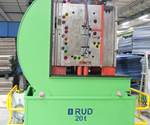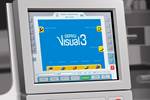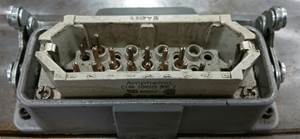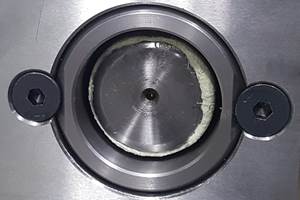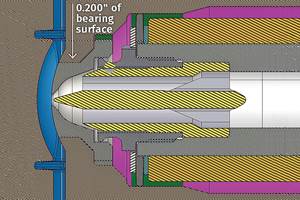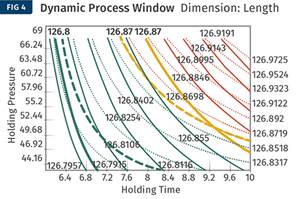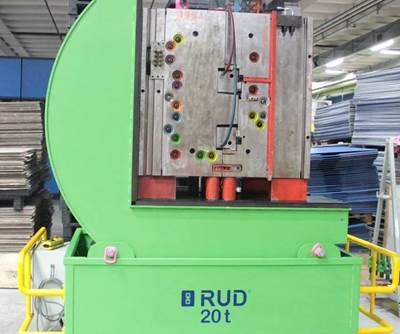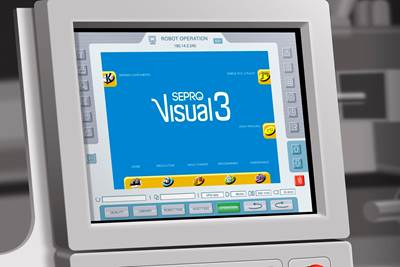Scaling New Heights With Vertical Integration
Eden Manufacturing was founded on a vision of vertical integration, adding advanced injection molding capabilities to a base of precision moldmaking and more recently bringing Swiss-type machining capabilities in-house.

Since its founding in 2019, Eden Manufacturing has experienced strong, consistent growth. Source: Eden Manufacturing
Toolmakers by trade, David Tomic and Mike Eden’s relationship began in 2006. Throughout the years, this friendship grew and ultimately led to the founding of Eden Manufacturing in 2019, an injection molding business across the parking lot from Eden Tool, which was founded as a moldmaker by Eden in 2000.
“I’m from Canada,” Tomic says. “Mike was down here in Pennsylvania, and I really felt the timing was perfect to start something. In speaking with Mike, he felt ready to expand, and that’s when we realized, ‘Wait a minute, we’re probably going to be better together.’”
Bringing together different people, skill sets and competencies under one roof is fundamental to Eden’s strategic approach. “Vertical integration of complicated manufacturing processes really is our value proposition,” Tomic says. Starting from designing and building tools, the company moved into validation (a key component to working in medical), injection molding and, most recently, the addition of Swiss-type precision machining capabilities, with the installation of a Star CNC Swiss machining cell and a Makino wire EDM for production metal parts in the fall of 2023.
“As the Swiss machine and wire EDM get vertically integrated, we can handle more portions of the same program,” Tomic says. Ultimately, Eden’s goal is to fabricate precision metal inserts in-house that it can then overmold with plastics using its molding capabilities on tools designed, built and maintained within Eden. “Insert molding then becomes the fourth step in vertically integrating,” Tomic says. “And it’s all under one roof, with one engineering team, so there are no pointing fingers. There is no shipping all over the world. It’s vertically integrated, and on complex parts that is a big advantage that we can offer.”

Mold design is one of the capabilities that the Eden group of companies offers its customers. Source: Eden Manufacturing
One key element of the engineering team and the vision of vertical integration is missing. In 2021, over the Christmas holiday and just after Eden Manufacturing’s second anniversary, Mike Eden, founder of Eden Tool and partner with Tomic in Eden Manufacturing passed away unexpectedly. Today, Tomic serves as the president of Eden Manufacturing and Eden Tool, which are operated as separate businesses, with Mike’s son, Jake, serving as the vice president of both companies.
After Mike’s passing, the company established a scholarship prize to honor him and his passion for American manufacturing in general and moldmaking specifically. The company collects donations to buy Gerstner toolboxes, which are then gifted to first- or second-year apprentices in the moldmaking industry.

Eden Manufacturing has four Fanuc Roboshot injection molding machines with multiple barrel and screw options to extend their range and capabilities. Source: Eden Manufacturing
Built-In Flexibility
Eden Manufacturing operates from a 17,000-square-foot facility across the parking lot from Eden Tool’s 10,000-square-foot moldmaking business. Targeting surgical and medical device applications and components, Eden Manufacturing is ISO 9000 and ISO 13485 certified and operates four Milacron Fanuc Roboshot injection molding machines, ranging in clamp force from 55 to 165 tons. All the presses have multiple interchangeable screws and barrels of various sizes, making Eden’s fleet of four presses functionally operate like a much bigger machine stable.
Two drivers ultimately led Eden to add injection molding: a key customer’s request and the desire to move mold sampling for Eden Tool in-house. “The customer liked what we offered on the tooling side and the support,” Tomic says, “and they wanted to get that on the part side as well.” The other factor was the lack of an in-house molding machine preventing Eden Tool from offering a “turnkey” solution for new molds. “We used a couple local shops to do some mold-validation work,” Tomic says, “but it wasn’t in-house or under our control, so it really did limit us from doing specific work.”
From the tool shop point of view, Tomic said the calculus on adding injection molding reflects a complicated balance between “getting a machine that’s accurate enough to have the resolution to properly process” while being aware of the added costs associated with all the requisite auxiliary equipment and keeping the machine busy.

Eden’s four Roboshots range in clamp force from 55 to 165 tons, but micromolding is possible thanks to swappable screw and barrel packages, including one with a shot volume of just 8 g. Source: Eden Manufacturing
“So, if you’re not running some production,” Tomic asks, “what do you do with these presses and how do you actually get a good press selection to properly validate tools so that you’re not taking a little microtool and shooting it with a monster barrel?” Eden found its answer in the Fanuc Roboshot machines, which offer the ability to switch out screws and barrels more easily. “Just changing out the barrel and a couple parameters and what that does is enable us to cover from a micromolding situation all the way up to a full 165-ton environment,” Tomic says, noting that its four machines really become more like eight. “From a size and configuration point of view, and for sampling in some of our parts and validation,” Tomic says, “that’s a big deal.”
Tomic notes that Eden Manufacturing’s sales have doubled every year of its existence as it pursues a “two-pronged” approach to molding. “Our plan was to offer parts in a redundant supply capacity to our customers and provide sampling, validation and turnkey capabilities,” Tomic says. “It was also to take programs in crisis and debug and fix them, where the customer had tooling issues. We have the ability in-house to support all of that.”
Tomic actually describes transfer tooling as Eden’s “number one growth strategy.” Programs have transferred out of a “supply chain vulnerable situation,” which describes many molding programs on the move since COVID-19 wreaked havoc on global supply chains.

Eden utilizes Sepro America, LLC automation on all its machines, including packaging equipment, to enable lights-out production. Source: Eden Manufacturing
Lights Out
Eden’s flexible machines boost productivity, and so does its ability to run 24/7 and lights out for some periods, thanks to automation built around Sepro cartesian robots. Eden currently runs a primary day shift, a secondary afternoon shift with a light crew, and then lights out overnight. On weekends, the presses are designed to run lights out or alongside a slimmed down skeleton crew. The 3,600-square-foot ISO Class Eight cleanroom production goes straight into final packaging at the press.
Vertically Integrating Workforce Development
Workforce development and succession planning are extremely important at Eden Tool and Eden Manufacturing, with the companies welcoming five busloads of students from the local high school into both shops over three days recently. The effort to think about the business’ future is also reflected in the current staff.
“We have a great, young team here,” Tomic says, “and that’s a big deal. Training is a big deal for us, as are business and actual technical experience. We put a lot of work into having a pretty diversified team, and that has become more and more important as we grow.”
Those diverse skill sets are also important as the company vertically integrates more and more capabilities.

Eventually, Eden plans to vertically integrate the fabrication of metal inserts for insert molding using its Start CNC Swiss machining cell. Source: Eden Manufacturing
Related Content
Hot Runners: How to Maintain Heaters, Thermocouples, and Controls
I conclude this three-part examination of real-world problems and solutions involving hot runners by focusing on heaters, thermocouples, and controls. Part 3 of 3.
Read MoreWhat You Need to Know About Leader Pins and Bushings
There’s a lot more to these humble but essential mold components than you might suspect. Following the author’s tips could save much time, money and frustration.
Read MoreHot Runners: Truths. Myths, Overlooked Areas: Part 2
Here’s a view from the trenches of a tooling manager who, over 30 years, has experienced the joys and pains of using virtually every type of hot runner on the market. Part 2.
Read MoreOptimizing Pack & Hold Times for Hot-Runner & Valve-Gated Molds
Using scientific procedures will help you put an end to all that time-consuming trial and error. Part 1 of 2.
Read MoreRead Next
Next Generation Plastics Workforce
After years of closely monitoring an increasingly worrisome labor shortage, the Plastics Industry Association’s warnings about the widening gap between the sector’s need for skilled workers and the supply of such employees have shifted to full alarm. The association calls for “collaborative response across all levels of government and all manufacturing sectors” to tackle this critical issue.
Read MoreTool Mover Improves Safety with Secure Movement of Heavy Molds
RUD Chain Inc. says that its RUD Tool-Mover moves heavy and sensitive dies, molds and tools safely and securely and therefore limits costs that damaged tools incur and improves safety for the operator.
Read MoreInjection Molding: Sepro Robot Controls Integrated With Fanuc Roboshot Machines
Program and operate the robot from the press controller.
Read More


